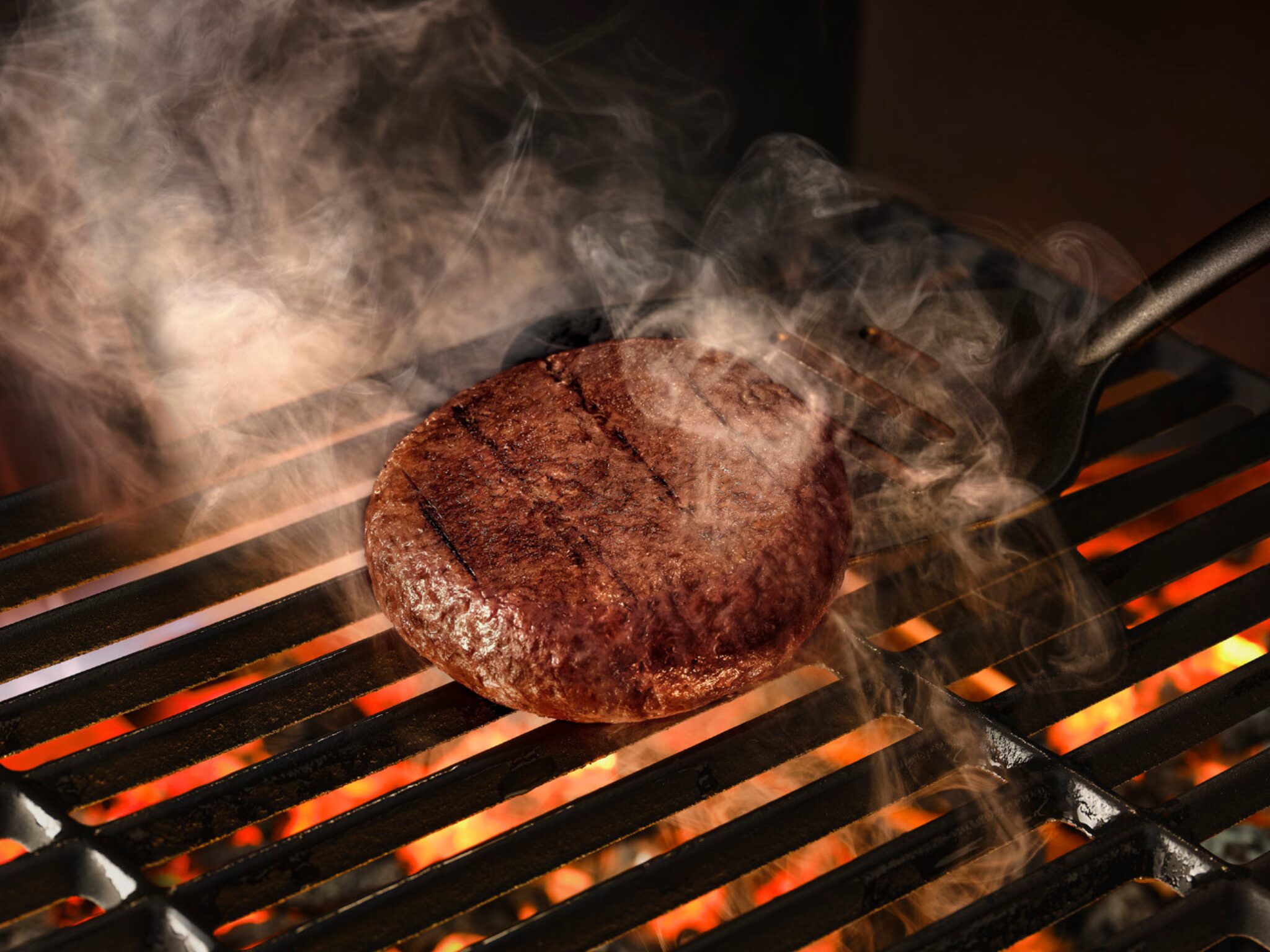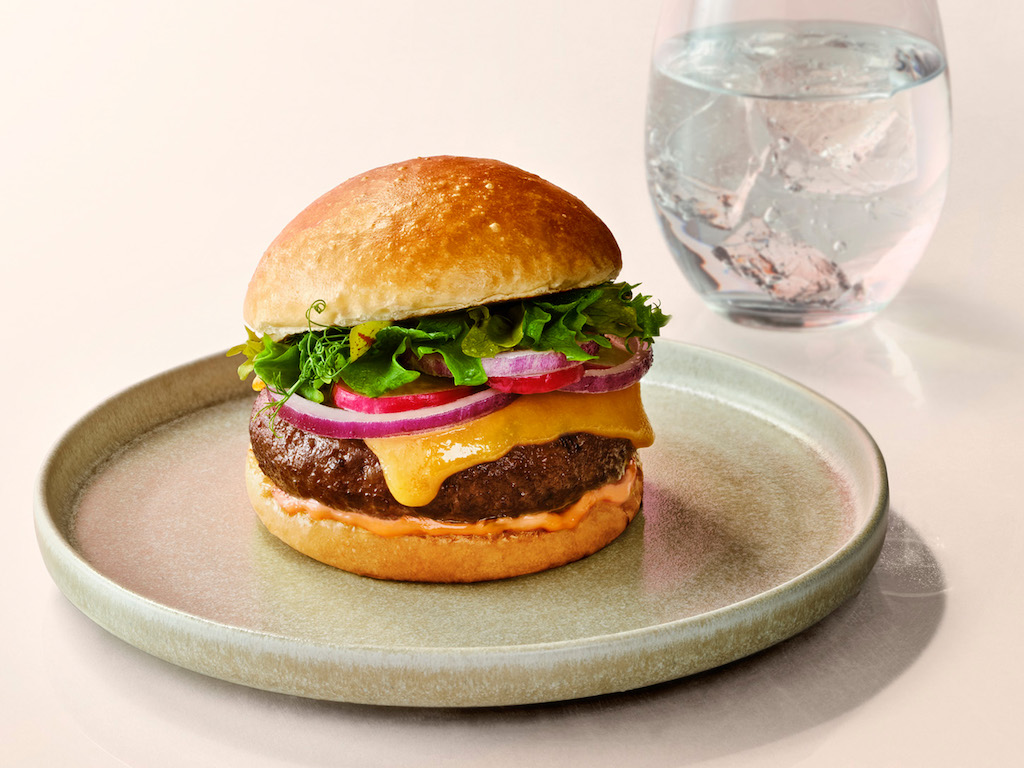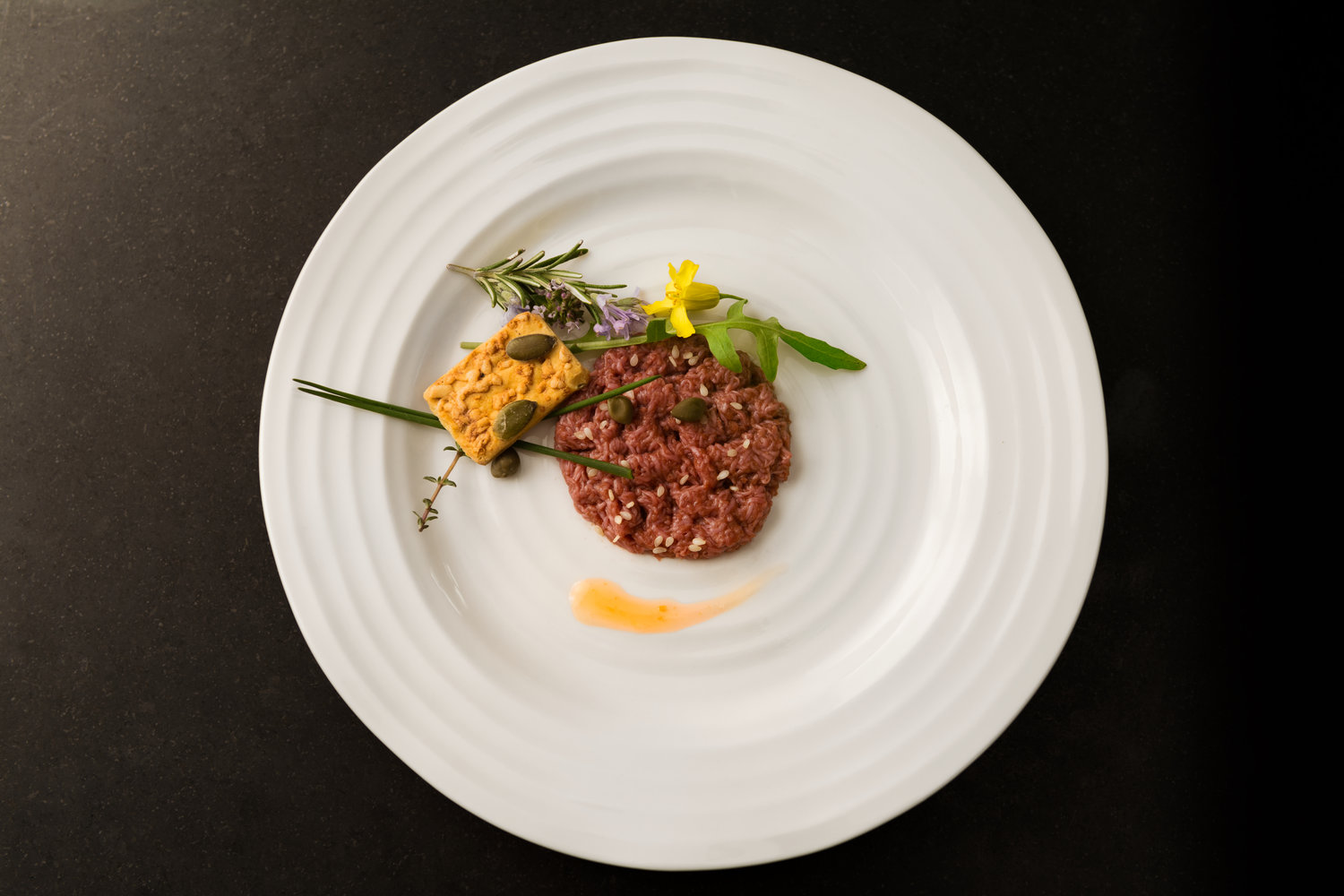
Dutch cultivated meat pioneer Mosa Meat has raised €40M ($42.4M) in a new funding round to support the “next phase” of the company’s growth, with a public tasting of its burger imminent ahead of its launch in Singapore.
The company that proved the concept for cultivated meat all those years ago is now gearing up for public tastings and market entry with a new €40M ($42.4M) round of financing. It takes Mosa Meat’s total raised to more than $135M, following its previous $85M Series B and $8M Series A rounds.
The oversubscribed round was led by Lowercarbon Capital and M Ventures, and included backing from new government-backed players like Dutch state-owned impact investor Invest-NL (partly with coverage from EU Commission programme InvestEU), Limburg province’s regional development agency LIOF, and the Limburg Energy Fund, a regional fund to support emissions reduction.
Other investors included poultry producer PHW Group (which has a background in alternative protein and cultivated meat financing), XO Ventures, Doux Investments, and others.
Mosa Meat expects Singapore approval soon

Mosa Meat’s latest financing round is the largest sum brought in by a cultivated meat company since November 2022, when Australia’s Vow (which incidentally received regulatory approval for the sale of its cultivated quail in Singapore earlier this month) raised $49.2M. It reflects the tough funding environment for cultivated meat, which was labelled a “sector to watch” by AgFunder after VC investments nosedived by 78% in 2023, against a larger 49% drop in agrifood tech funding last year.
“The overall macroeconomic landscape has been rough in the last two years, which has culled the herd of companies and forced us to be even more strategic and focused on achieving our mission,” said Mosa Meat CEO Maarten Bosch. “As such, we are humbled and honoured to welcome both public parties and conventional meat producers to join this critical journey.”
The company will use the funds to further scale up its production processes, following the May 2023 opening of what it claims is currently the world’s largest cultivated meat facility in Maastricht, Netherlands. This “cultivated meat campus” is its fourth plant, expanding its footprint to 7,340 sq m (79,007 sq ft), and has a 1,000-litre bioreactor scale that can produce “tens of thousands of cultivated hamburgers”.
The capital will also help Mosa Meat accelerate its market entry. The startup is actively pursuing regulatory approval in “North America, Asia, Europe, the UK and more”, according to Bosch, who told Green Queen in September: “We’re engaging policymakers at the national and international levels to encourage the enabling conditions necessary to foster thriving cellular agriculture ecosystems.”
It’s expected that Mosa Meat’s cultivated beef burger will first be introduced in Singapore, where the regulatory greenlight is imminent. So far, only Israel’s Aleph Farms has been cleared to sell cultivated beef, announcing the go-ahead in its home country in January.
Cost-effective, high-quality cultivated beef ready for public tastings

Mosa Meat first unveiled its cultivated beef in 2013 at a now-famous press conference in London. At the time, the two proof-of-concept burger patties cost $330,000, but the company has since made major strides in bringing down its costs. In 2020, it brought down the price of its own growth medium by 80-fold, and the following year, it slashed its fat medium’s cost by 66 times.
To further these efforts, it received a €2M grant from the EU to cut production costs by 100-fold in 2021. And last year, it partnered with its investor Nutreco to develop a cell feed supply chain and transition to food-grade amino acids to achieve this reduction without affecting yield. While its exact production costs are not known, it’s estimated that cultivated meat needs to cost $2.92 per lb to be on price parity with conventional meat.
Mosa Meat is focusing on beef over other meats first because of its impact on the climate – it is the most polluting food on the planet. The Dutch startup’s cultivated beef, however, is created in facilities that use 100% renewable energy, and last year, a peer-reviewed life-cycle assessment revealed that cultivated beef can lower climate impact by 92%, air pollution by 94%, land use by 95%, and water consumption by 78% compared to conventional beef. In September, the company became the first cultivated meat company to be certified as a B Corp.
Strengthening its reputation as a pioneer, Mosa Meat removed the controversial fetal bovine serum from its cultivated meat in favour of a serum-free growth medium, and published the method as open-source for other industry players to use in 2022.
Cultivated meat has been under attack in the media and the political sphere recently, with governments in the US and the EU attempting to ban or restrict these foods. Italy and Florida have already done so. “In an environment that is increasingly polarised, we choose to connect and collaborate, working towards a future where cultivated beef is a real choice for consumers and a complementary solution in the toolbox to combat the climate crisis, biodiversity loss, and food insecurity,” said Bosch.
The company is currently awaiting approval from the Dutch government to host public tastings for its cultivated beef, following the establishment of a Code of Practice in July with support from Mosa Meat, cultivated pork producer Meatable, and sector representative HollandBIO. “Rethinking how we produce great food for a growing planet without destroying it is quite a daunting task and will take many people and organisations to pull in the same direction,” added Bosch.
Speaking on the Green Queen in Conversation: Cultivated Meat Pioneers podcast in August, Mosa Meat founder and CSO Dr Mark Post outlined the importance of having a high-quality product that outcompetes current meat analogues. “I cannot help thinking that part of it is that people just want to have meat, that the meat alternative has to be meat and nothing else,” he said. “So, the foremost goal of the company is to create a high-quality alternative that is sufficiently credible for consumers to change their behaviour away from traditional meat.”
The post Mosa Meat Secures €40M in Funding to Expand Production and Speed Up Launch of Cultivated Meat appeared first on Green Queen.
This post was originally published on Green Queen.